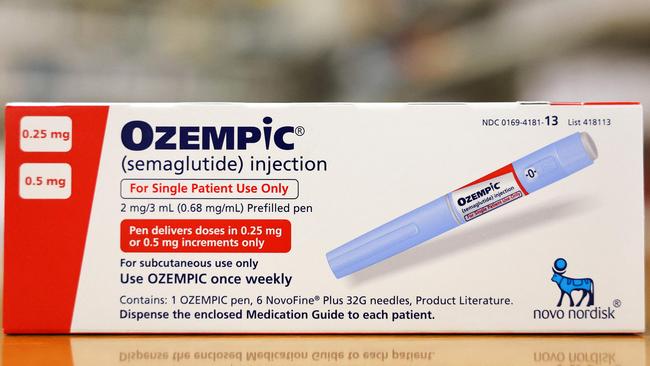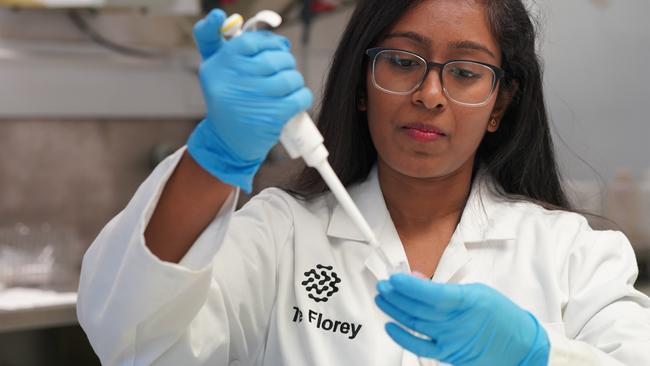Melbourne discovery offers solution to Ozempic supply delays
A faster and cheaper way to make a diabetes and weight loss drug has been discovered by a Melbourne team — and it may solve the global supply issues hitting Ozempic.
Health
Don't miss out on the headlines from Health. Followed categories will be added to My News.
A faster and cheaper way to make a diabetes and weight loss medication similar to the blockbuster drug semaglutide has been developed by Melbourne researchers.
Ozempic and Wegovy are brand names for the compound semaglutide. These in-demand injectables mimic a gut hormone released after eating that makes people feel full. This helps with diabetes and weight loss as it reduces appetite and boosts the release of insulin.
It comes as news of an experimental pill version of a weight loss drug called amycretin was announced at the weekend by drug manufacturer Novo Nordisk. They hope to bring it to market by the end of the decade.

The difference with the Melbourne team’s world-first discovery is that they have found a way to make semaglutide “soluble”. This will make it easier, they say, to handle and manufacture.
The Florey-led team say it could be the solution to the critical global supply shortage of semaglutide that has resulted in not only lengthy delays to access, but also some compound pharmacists making unauthorised versions.
The Florey’s “secret ingredient” was the discovery of a chemical process that allowed them to make an analog version of the drug – so one similar in structure, but different in composition.
They call their drug candidate GlycoGLP-1.

Team member Dr Chaitra Chandrashekar says because GlycoGLP-1 could be more easily handled, it was possible to make 10 times more of the drug compared to semaglutide.
“It is an exciting discovery with the potential to help millions,” Dr Chandrashekar says.
“There is a growing demand for medications that can treat obesity and diabetes. Medications do help, but in combination with a healthy lifestyle that includes regular exercise and diet.”
And while this is also some years from market, Dr Chandrashekar said diabetes and obesity were ongoing health problems that were not going away.

The international team was led by The Florey’s Professor Akhter Hossain.
“We set out to develop an improved and cost-efficient synthetic process for making a potential new drug to target the GLP-1 receptor,” Professor Hossain said
Worldwide more than half a billion people have type 2 diabetes and more than four billion are predicted to be overweight or obese by 2045.
“It is an epidemic and there are a limited number of effective drugs so we are hoping this can help solve this in the future,” Dr Chandrashekar said.
She says being able to dissolve in water is key to the discovery as semaglutide is “sticky”, making handling and manufacturing not only difficult, but expensive.
“This might be one of the reasons there is a global shortage,” Dr Chandrashekar said. “What we did was replace that sticky component with something that can easily get into water.
“We also came up with a new chemical method that had less chemical steps to make manufacturing easier.”
Details of the team’s discovery were published in the Journal of Medicinal Chemistry.





